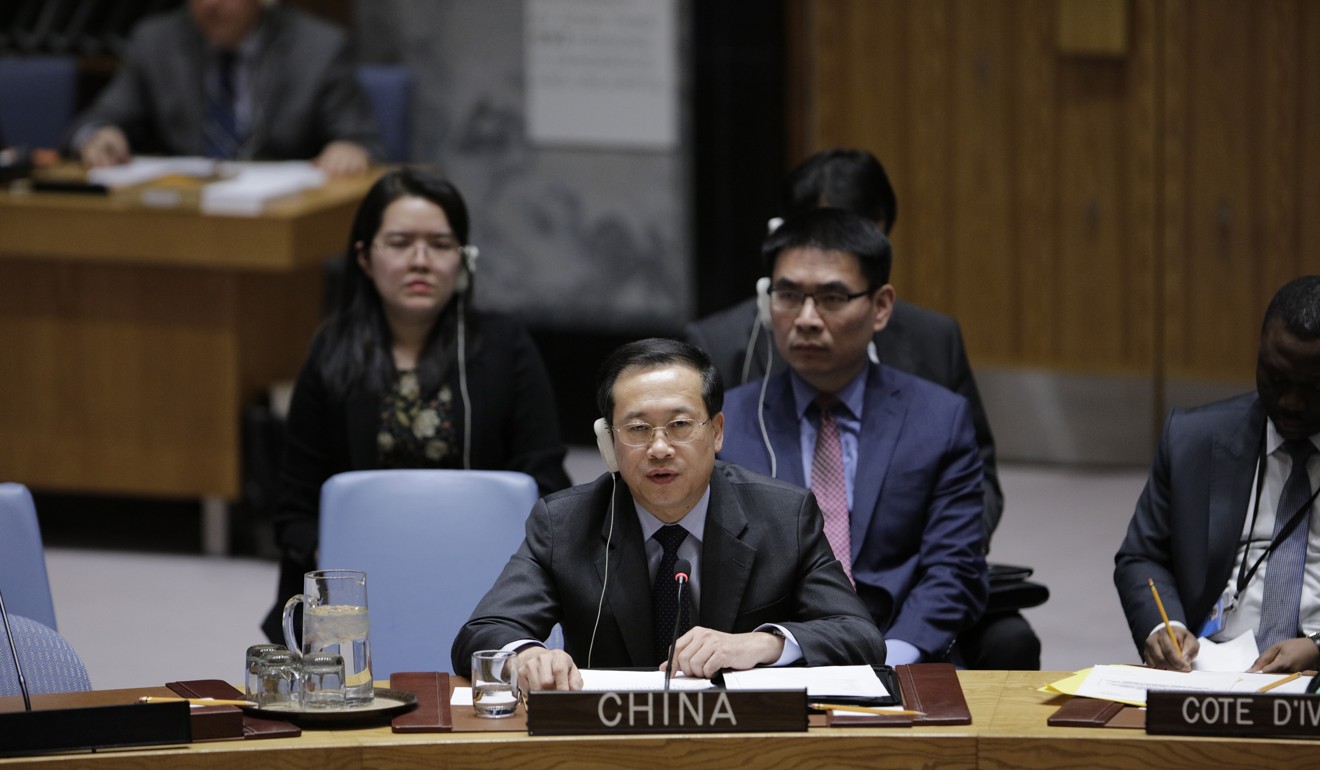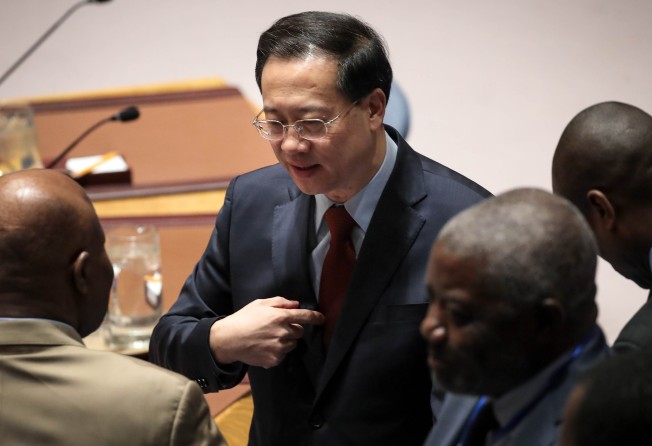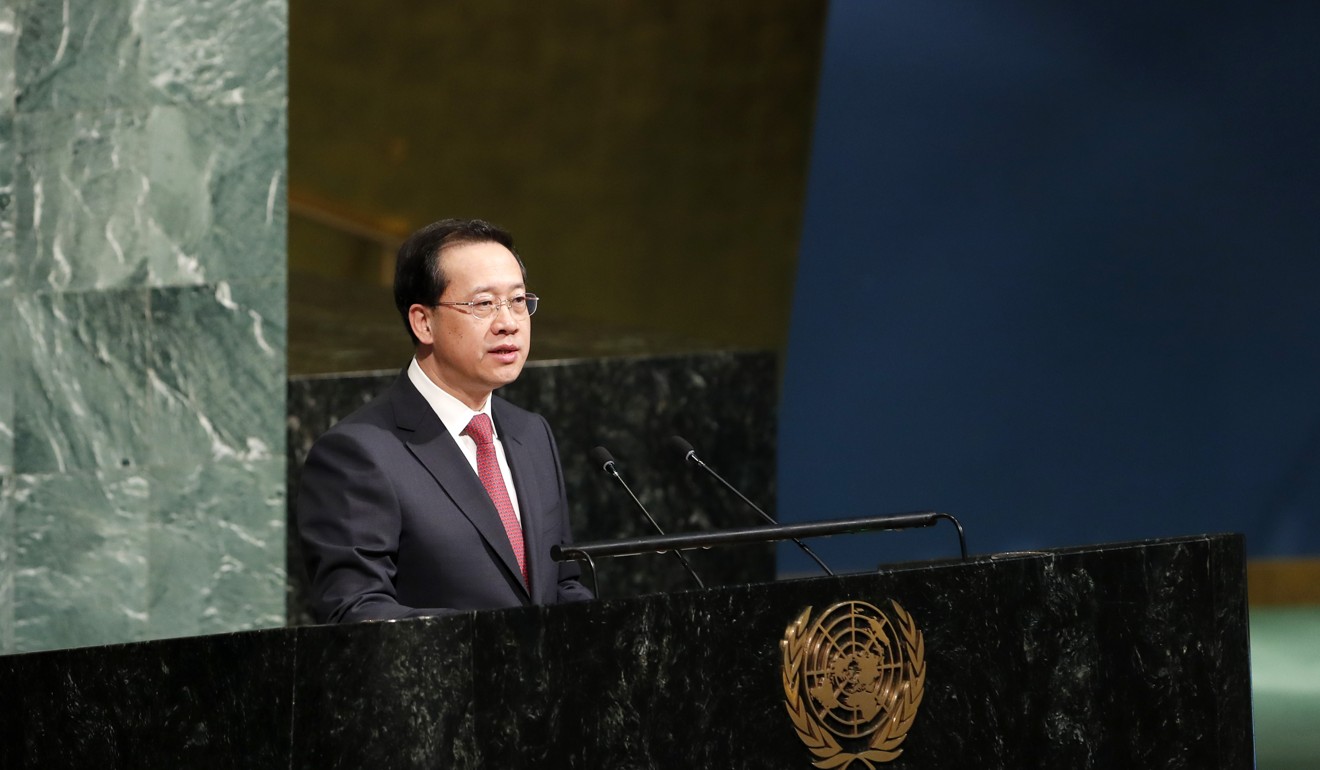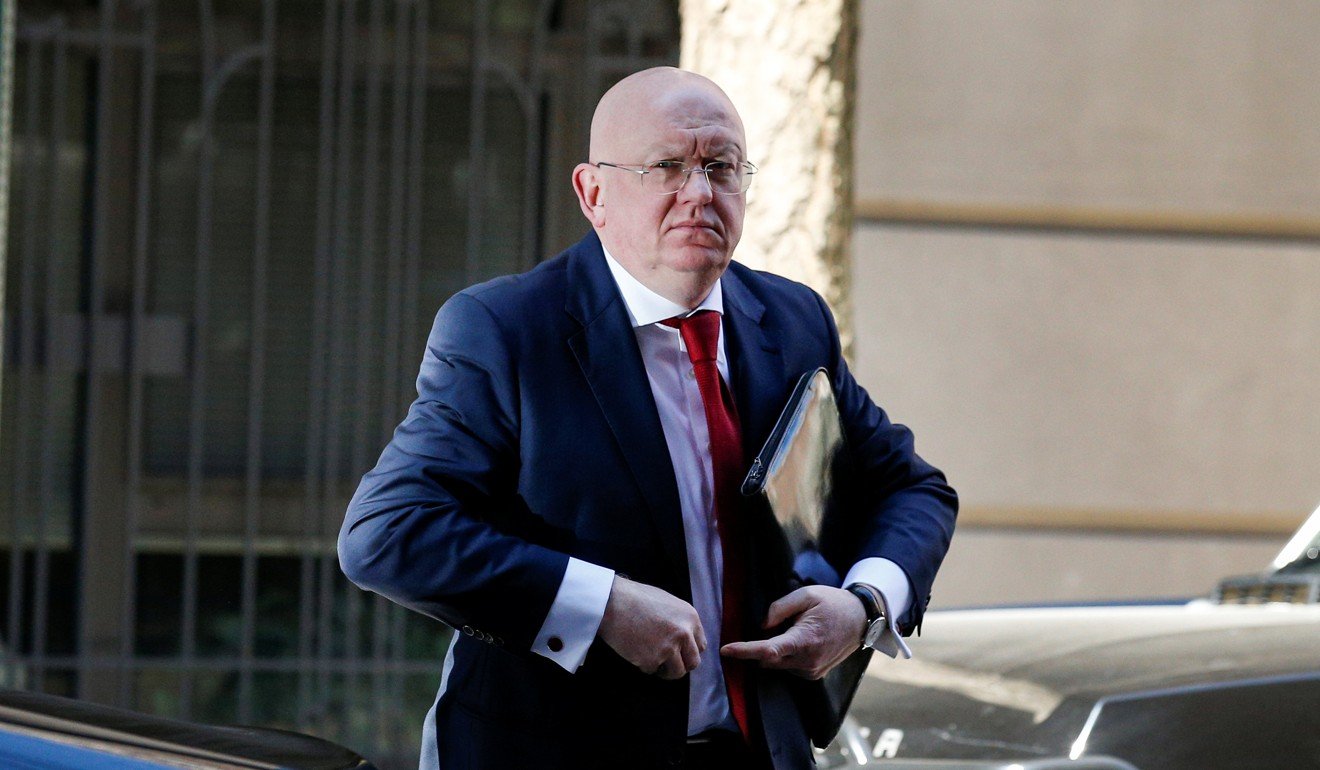
How China and Russia shifted power balance at UN - and scored a win in their war on human rights
‘China is the real playmaker here. It has cleverly combined positive messaging over climate change and development with an increasingly uncompromising approach to limiting human rights’

António Guterres, the secretary-general of the United Nations, has quietly begun to dismantle a key cell within his office charged with ensuring that the international body’s sprawling political and humanitarian agencies promote human rights.
The move comes mere months after China, with the support of Russia and other critics of the UN human rights mission, led a successful effort in an obscure but powerful UN budget committee to block a request by Guterres to fund the cell, which was established in 2014.

On a range of fronts, China and Russia have grown increasingly assertive in their efforts to curtail human rights advocacy, targeting financing for UN rights programmes, barring human rights defenders from participating in UN meetings, and ratcheting up pressure on smaller countries to vote alongside them in the UN Security Council. They have tapped into a growing aversion to advocacy from scores of governments that resent what they see as the West’s manipulation of human rights causes to punish political rivals.

Only last week, Beijing and Moscow prevailed in an effort to block a US-backed proposal to have the UN high commissioner for human rights, Zeid Raad al-Hussein, brief the Security Council in a formal session on flagrant rights abuses in Syria.
A US official challenged the notion that human rights has been in retreat at the UN since President Donald Trump took office.
“On the contrary, the United States has been gaining ground on human rights at the UN,” the official says, citing a number of human rights meetings sponsored by Nikki Haley, the US ambassador to the UN

But other observers see a subtle shift in the council’s balance of power at the UN, where states opposed to human rights advocacy – including China, Egypt, Pakistan, and Russia – have grown increasingly assertive in pressing their case. At the same time, the United States and its European allies have shown less vigour in fighting for the cause.
As China’s share of the UN budget has ballooned in recent years, its diplomats have sought steeper cuts in UN spending. Their efforts have disproportionately targeted posts with a mandate to protect human rights from UN headquarters to the field, where they have sought to eliminate human rights posts in UN peacekeeping missions.
At the same time, China has become more assertive in curtailing the ability of independent human rights advocates to have their voices heard at the UN. Chinese diplomats have begun to insist, for instance, that groups seeking to be accredited to speak at UN functions publicly recognise Chinese sovereignty over Tibet.
“China is pushing this stuff really hard,” says Louis Charbonneau, the UN director at Human Rights Watch. But many countries that traditionally support human rights “mainly pay lip service to the need to keep human rights high on the agenda while barely lifting a finger to do anything about it. We aren’t going to be able to fight this sitting down.”
The latest battle over human rights dates back to the spring of 2014, when Guterres’s predecessor, Ban Ki-moon, created the cell to implement his signature Human Rights Up Front initiative, which was established after criticism of the UN’s tepid response to the mass killing of tens of thousands of civilians by the Sri Lankan armed forces in 2009. The initiative was designed to encourage UN staff at headquarters and in the field to “take a principled stance and to act with moral courage to prevent serious and large-scale violations.”
The cell was largely funded outside the UN’s regular budget, relying on funding from Norway, Denmark, and the United Kingdom. The new UN chief, who supports the initiative in principle, last year sought funding from the UN General Assembly budget committee to underwrite the cost of the senior official in the secretary-general’s executive office. But the committee – which is run by UN member states – rejected the request in December.
The human rights cell, which once employed as many as five people, has continued to shrink. Today, Guterres plans to eliminate the post for the last remaining senior official and transfer his responsibilities to a senior aide, Fabrizio Hochschild, who is respected by human rights advocates, but they say he oversees too broad a portfolio to devote sufficient attention to human rights.
In an interview, Hochschild says Guterres wanted to preserve the cell but that he was blocked by the membership. “There is no question that the general climate for promoting respect for human rights has grown more difficult,” he says. “I don’t want to comment on individual member states, but there has been a much broader pushback on human rights than two member states.”
Human rights advocates have expressed concern about the decision to shutter the office.
“Our conversations with member states indicate that the post – and the broader Human Rights Up Front Initiative – has widespread support, and the decision to eliminate it aligns with the desire of only a small minority of states,” a coalition of human rights organisations, including Amnesty International and the International Service for Human Rights, wrote in a letter to Guterres.